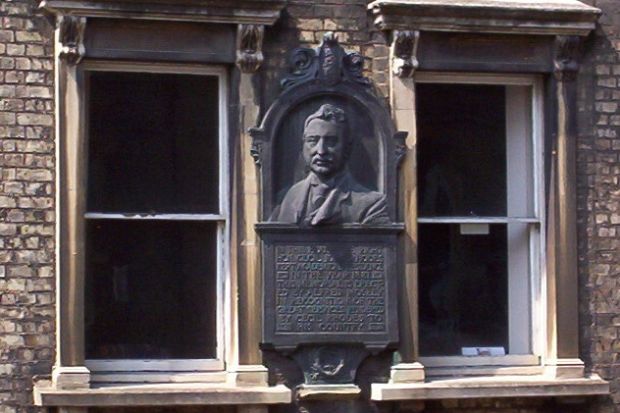The University of Oxford’s chancellor Lord Patten of Barnes has spoken out about the Cecil Rhodes debate, saying that students unable to come to terms with the mining magnate’s place in history should “think about being educated elsewhere”.
Speaking on Radio 4’s Today programme this morning, the former Conservative minister and governor of Hong Kong argued against the Rhodes Must Fall In Oxford campaign, a movement to remove a statue of British colonialist Cecil Rhodes from Oriel College, Oxford.
Because of the campaign, Oriel has agreed to remove from one of its buildings a plaque commemorating Rhodes and will also consider whether or not to remove the statue.
Lord Patten told Today that the scholarship programme at Oxford that had been made possible owing to the endowment left by Rhodes had been endorsed by Nelson Mandela.
“If people at a university aren’t prepared to demonstrate the sort of generosity which Nelson Mandela showed towards Rhodes and towards history...then maybe they should think about being educated elsewhere,” he said.
The Rhodes Must Fall In Oxford campaign – an extension of the movement started in South Africa to remove a Rhodes statue at the University of Cape Town – has called the statue of Rhodes at Oriel College “an open glorification of the racist and bloody project of British colonialism”, saying that it represents Oxford’s tacit identification with Rhodes’ values.
Lord Patten said that he was happy to debate and discuss ideas but pointed out that there were buildings at Oxford, other UK universities and many British cities that had been funded by people and activities – like the slave trade – that were now rightly considered abhorrent.
However, to remove history would cause UK universities to become “a bland diet of bran to feed people”, adding, “if you want universities like that you go to China where they’re not allowed to talk about ‘Western values’, which I regard as global values.”
The Rhodes statue dispute follows similar debates about student “no platforming” and “safe space” policies on UK and US university campuses. In October, more than 3,000 students signed a petition to stop Germaine Greer speaking at Cardiff University because of views she had expressed on transgender issues.
Lord Patten said the idea of “safe spaces” was “madness”. “To deny freedom of speech and freedom of inquiry at university would be a treason to the sort of values universities should represent,” he added.
The Oxford chancellor also spoke out against the Rhodes Must Fall campaign yesterday at the installation of Oxford’s new vice-chancellor, Louise Richardson.




